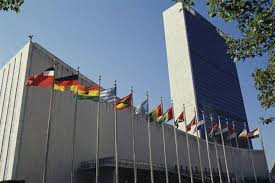International organizations, as well as public administrations, call for a large number of tenders daily, in different countries, to contract the provision of services, supplies of goods, or the execution of works.
The flow of resources managed by international organizations for projects, awarded through competitive international bidding procedures, has invariably reflected uninterrupted growth year after year and will continue to do so according to the objectives announced by the different institutions.
The sources of information to turn to to detect possible business opportunities are mainly multilateral institutions such as the European Union, Multilateral Development Banks, United Nations agencies and bilateral cooperation agencies.
The European Union It has three instruments directly related to tenders, such as European Structural Funds and Cohesion Fund, whose objective is to reduce the differences between the levels of development of the various intra-European regions and reduce the delay of less favored territories, and External Aid Funds, to finance actions in developing countries or in candidate countries to become members of the Union.
The European Union and Member States provide approximately 56% of the world's total Official Development Assistance (ODA). The figures for external aid rise above 10,000 million euros annually, in all cases being non-refundable subsidies.
Companies or entities from the 27 member states of the European Union have access to funds for participation in tenders, competitions and proposed calls. It is worth highlighting the mission of EuropeAid, the application of the foreign aid instruments of the European Commission, which are financed from the budget of the European Community and the European Development Fund. On its website you can find the business opportunities that generated by the projects financed by the Commission.
The Multilateral Development Banks They contribute, like the European Union, to contributing to the economic and social development of developing countries.
The main ones are the Group world Bank and regional and subregional banks such as the Inter-American Development Bank, the Asian Development Bank, the Asian Development Bank, the European Bank for Reconstruction and Development or the Central American Bank for Economic Integration.
Banks grant financing to support development through instruments, among which are loans, normally at a preferential interest rate and a term longer than that of commercial banks, donations to less developed countries for studies or project preparation, and trust funds. , this is the administration in trust of the funds contributed by member countries to carry out consultancies and other technical assistance.
Useful information about the Bank's projects for businesses, as well as specific information for borrowers, Bank policies, procedures and guidelines for the procurement process, can be found on the banks' websites.
 The United Nations It includes a series of agencies, such as UNICEF, WHO or FAO among others, which issue approximately 100,000 contracts and purchase orders per year with amounts between 10,000 and 50,000 USD. In addition, it can help improve the knowledge of some companies regarding the quality standards and competitiveness of the international markets for their products. Spain has been very far from this market, but more and more companies are managing to supply different agencies with products, technical assistance and services.
The United Nations It includes a series of agencies, such as UNICEF, WHO or FAO among others, which issue approximately 100,000 contracts and purchase orders per year with amounts between 10,000 and 50,000 USD. In addition, it can help improve the knowledge of some companies regarding the quality standards and competitiveness of the international markets for their products. Spain has been very far from this market, but more and more companies are managing to supply different agencies with products, technical assistance and services.
¾ of the spending is concentrated in only 5 organizations, despite being made up of more than 40 organizations and agencies. These 5 organizations are World Food Program (WFP), Procurement Division of the Technical Secretariat (UN/PS), United Nations Children's Fund (UNICEF), Project Implementation Program (UNDP) and the Office of Children's Services. United Nations Projects (UNOPS). The UN Global Market Place (NGM) is the most important portal for identifying purchasing opportunities and aims to become the only portal in the future.
Aid from United Nations agencies is always about donations, unlike the MDBs which were based on loans as well as donations. In recent years there has been an important decentralization process due to the progressive increase in the autonomy of representative offices in developed countries to make purchases up to a certain limit. Due to the large number of agencies that participate in the United Nations, companies must carry out an identification effort and an analysis prior to project demand.
It is worth highlighting the United Nations Development Program (UNDP), which advocates the protection of human rights and especially women's rights, identifies and promotes gender equality as an essential dimension of ensuring political participation and responsibilities. UNDP seeks to ensure that the most effective use possible is made of United Nations aid resources.
Finally, most developed countries grant development aid and cooperation initiatives through cooperation agencies or ministries through donations and financing with different degrees of concession. Currently, aid is being imposed with funds unrelated to the origin of the supply, which allows companies that are not from the country that grants the aid to access this type of funds.
In Spain, most of the business opportunities generated by development cooperation are found in the Development Assistance Funds (FAD) and Feasibility Study Funds.
It is also worth highlighting the competitions carried out by public administrations for the acquisition of goods and services, as well as the contracting of works, by a public body. The Spanish Consulting Funds, the Spanish government makes a large sum of money available to multilateral financial institutions so that they can finance the hiring of Spanish consulting companies. As well as the ICEX, which, on its website, provides SMEs with information on international tenders as well as information and advice on EU cooperation programs with third countries, Development Banks, and the United Nations system.



